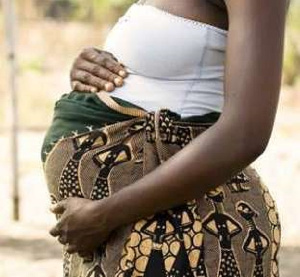A total of 694 girls in the Upper West Region returned to school pregnant as of May 2021 when schools reopened after the government announced a shutdown in March 2020 due to the outbreak of Covid-19.
Out of the number, 50 of them were in Primary Four, 105 in Primary Five, 261 in Primary Six, 48 in JHS 1, 91 in JHS 2, and 139 in JHS 3.
Madam Janet Kpan, the Upper West Region Girls' Education Officer, disclosed this in a presentation at the "Back-To-School Campaign” Review Workshop in Wa.
She said 85 of the pregnant girls returned to school after childbirth as of May 2021.
She said out of the 85, three were in Primary Four, five each in Primary Five and Primary Six, 13 in JHS1, 24 in JHS2, and 39 in JHS3.
On school enrollment, Madam Kpan noted that enrollment at the Kindergarten (KG) decreased from 62,803 children as of March 2020 to 58,386 as of May 2021.
At the Primary level, the figures decline from 120,089 pupils as of March 2020 to 111,692 as of May 2021.
At the JHS level, a total of 44,764 pupils were enrolled as at March 2020, but this fell to 35,059 by May 2021.
Madam Kpan noted that but for the “Back-To-School Campaign” initiative by the Ghana Education Service (GES), the case of students, including pregnant girls failing to return to school would have been worst.
She said the campaign adopted strategies, including community sensitization durbars; radio discussions; training of teachers on how to provide adequate health and emotional support for children in school; and provision of Personal Protective Equipment (PPE) across all schools to enable students to observe the COVID-19 protocols.
Others are the use of successful females as role models, regular visits and interaction by officers with pupils, guidance and counselling on further education and other career pathways and provision of the necessary support to students as and when needed.
On key issues that affected the return of children to school across the region, Madam Kpan identified stigmatization, lack of cooperation from parents, illegal small scale mining, popularly known as galamsey, pregnancy, some students getting married and others abandoning school to engage in driving the commercial motor taxi cabs.
The rest are stigmatization from colleagues, lack of parental support and in the case of those pregnant, who to take care of the child for the mother to return to school.
The Regional Girls’ Education Officer noted that some measures, including ensuring punctuality among teachers, teaching children healthy lifestyles, observing the protocols, listening to children's concerns both at school and home were also taken to ensure that children already in school continued their education devoid of absenteeism or dropout.
Latest Stories
-
Queenmother calls on President-elect Mahama to appoint more women in his government
2 hours -
Atletico Madrid beat Barcelona to go top of La Liga
2 hours -
Usyk breaks Fury’s heart with points win in rematch
2 hours -
Ghana-Russia Centre to run Russian language courses in Ghana
7 hours -
The Hidden Costs of Hunger: How food insecurity undermines mental and physical health in the U.S.
8 hours -
18plus4NDC marks 3rd anniversary with victory celebration in Accra
11 hours -
CREMA workshop highlights collaborative efforts to sustain Akata Lagoon
11 hours -
2024/25 Ghana League: Heart of Lions remain top with win over Basake Holy Stars
12 hours -
Black Queens: Nora Hauptle shares cryptic WAFCON preparation message amid future uncertainty
12 hours -
Re-declaration of parliamentary results affront to our democracy – Joyce Bawah
12 hours -
GPL 2024/25: Vision FC score late to deny Young Apostles third home win
13 hours -
Enhancing community initiatives for coastal resilience: Insights from Keta Lagoon Complex Ramsar Site Workshop
13 hours -
Family Health University College earns a Presidential Charter
13 hours -
GPL 2024/25: Bibiani GoldStars beat Nsoatreman to keep title race alive
13 hours -
GPL 2024/25 Bechem United keep title hopes alive with narrow win over FC Samartex
13 hours

